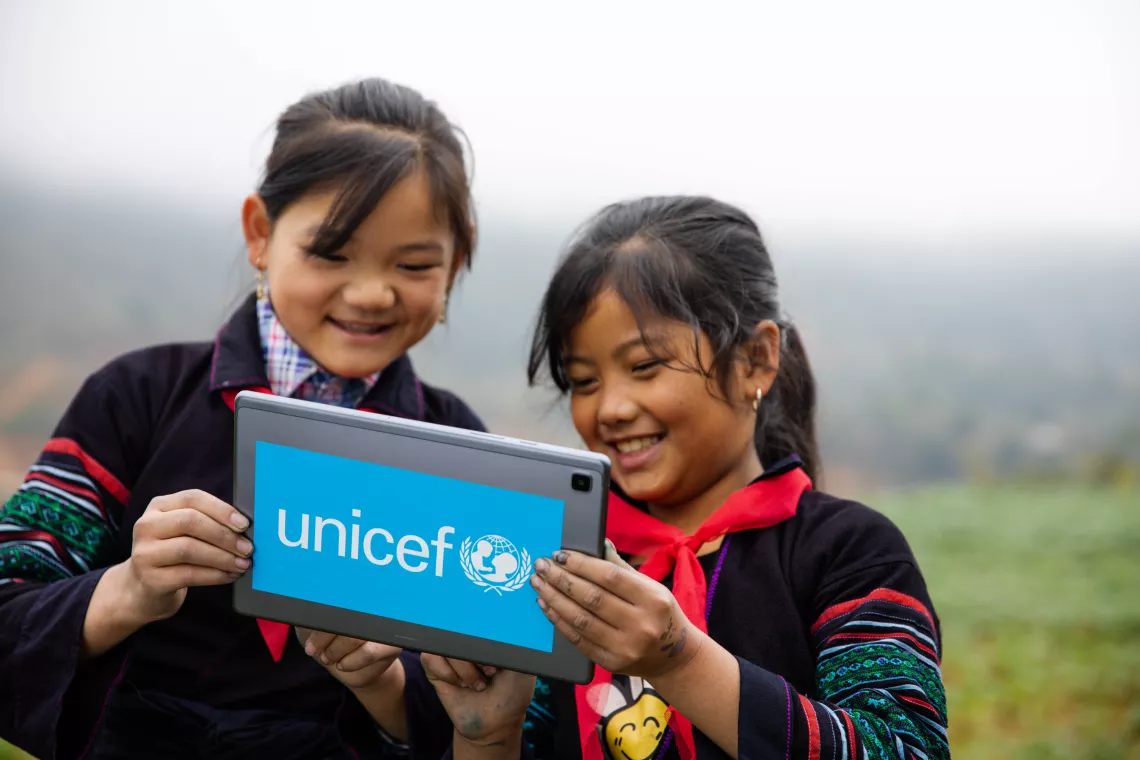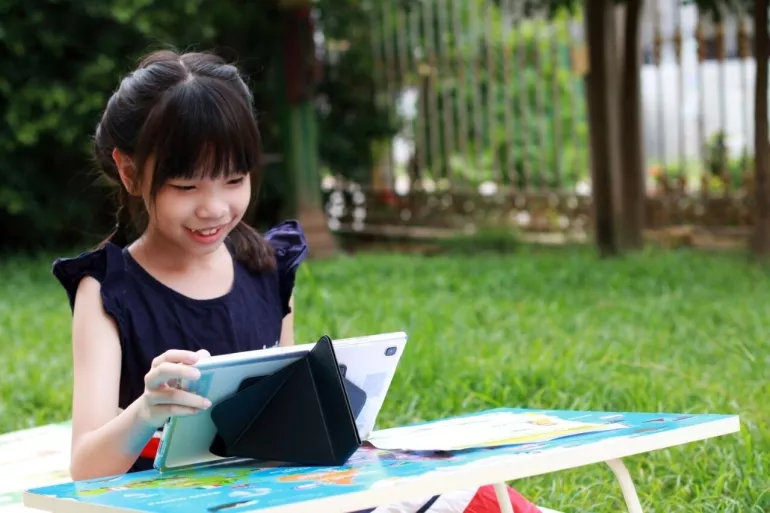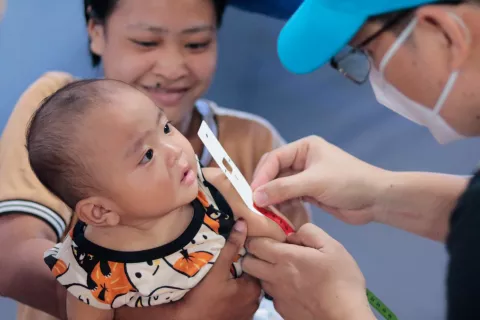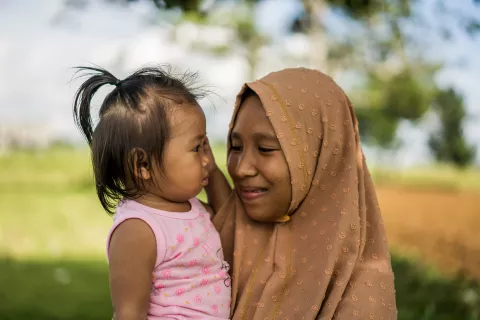Today’s world is a digital world. We use technology for work, study, communicating and play. We use Apps such as WhatsApp, Google, and Instagram; but what role does gender play in how we can use technology?
In 2022, an estimated 73 per cent of Asia-Pacific youth aged 15–24 years were using the internet. By 2030, it is estimated that 80 per cent of jobs in Southeast Asia will require basic digital skills. Yet, girls and young women are less likely across the region to choose careers in technology including STEM (science, technology, engineering and mathematics) because they are deemed as “men’s jobs” or “too hard” (Girls Digital Literacy Report, 2023).
Why? Gender norms, lack of knowledge on how to use technology, and access to devices and data can make it more difficult for girls to develop digital skills.
Girls are 1.8 times less likely than boys to own a smartphone. Women are 25 per cent less likely than men to know how to use technology for basic activities. Roughly 27 per cent of girls used the internet on their phones, compared with 46 per cent of boys. While girls and boys often have similar levels of digital literacy at younger ages; girls start to be left behind as they progress through education and, crucially, are less likely to develop advanced digital competences (Girls Digital Literacy Report, 2023).
Contributing factors include lack of access to devices, language barriers, and sociocultural norms which particularly impact girls. Girls, especially girls in rural areas, are lacking the support to develop advanced digital skills, to be ready for a digital future.
“Girls … often underestimate their ability and disengage prematurely from STEM subjects,”
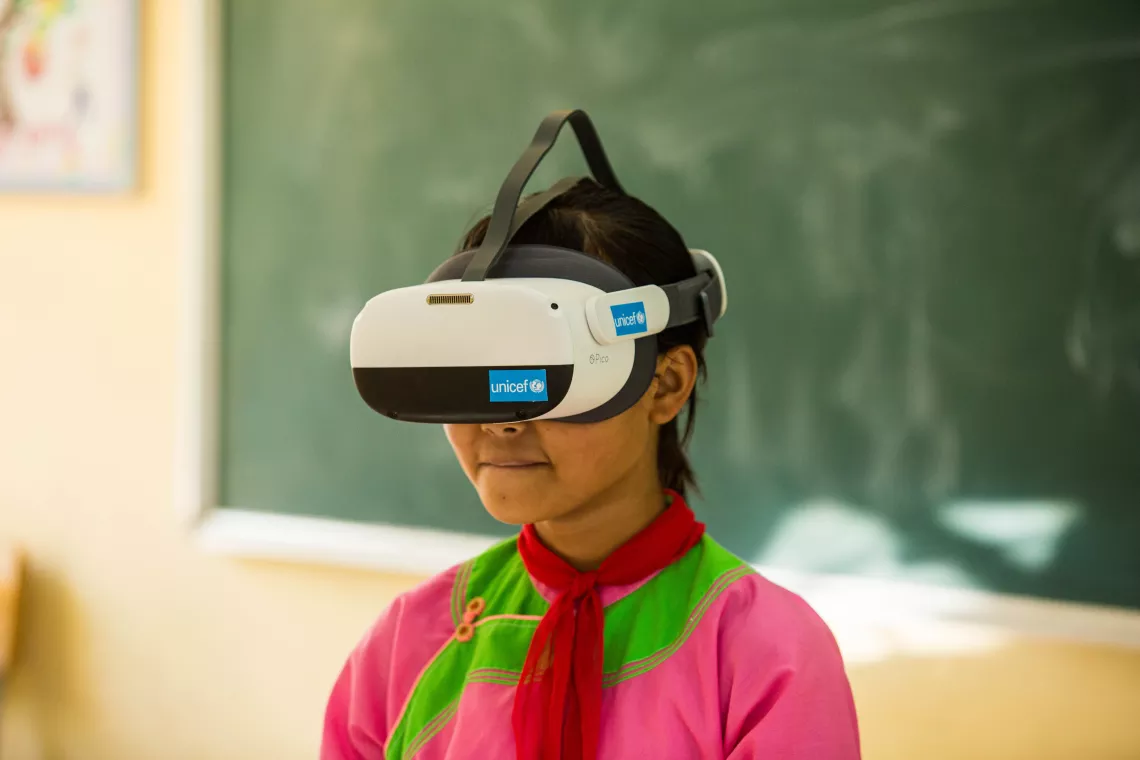
What can we do about the Gender Digital Divide?
The Girls Digital Literacy Report issued in April 2023 urges stakeholders including governments and the private sector to address the gender digital divide by supporting the empowerment of girls to develop advanced digital competencies safely and by ensuring both girls and boys have increased access to affordable internet and digital devices. It outlines the need to generate more data on digital skills by gender and to address sociocultural norms that limit girls’ technology-related aspirations and learning opportunities.
The Bangkok Statement 2022 and the Declaration on the Digital Transformation of Education Systems in ASEAN confirm governments' commitment to bridging the digital divide. Furthermore, organizations such as UNICEF are working with partners to provide devices and teacher training to get girls, and boys, the support they need to see the opportunities and the potential for a digital future.
UNICEF has supported partners across the region in addressing these needs. In Philippines, the Learning Passport has been deployed particularly in typhoon-effected areas to make sure that children keep learning and have access to technology to develop digital skills even in times of crisis. In Viet Nam, girls living in rural areas are being supported in schools with Virtual Reality glasses and tablets to learn about science, nature and the world around them. Initiatives in the region have shown children and their parents/caregivers that technology can be used for more! In Indonesia, WhatsApp was used for distance learning during school closures due to COVID-19 prevention measures.
The impact on girls can be meaningful and show a different future. Si, an 11-year-old girl from Ham Rong, a rural community in Vietnam always loved learning subjects like science, technology, engineering, and mathematics but the real-life application of technological innovation provided by the government with UNICEF support is completely new to her.
There is more work to be done. A key priority must be to address the lack of digital access within public education systems, particularly for girls and in rural areas. Supporting girls to learn digital skills by supporting teachers is critical. Teachers are key to combatting gender stereotypes regarding technology in the classroom where they can support the development of digital skills and literacy for girls. Working together, UNICEF and partners, especially the public sector, can overcome the gender digital divide and help girls develop their digital skills.
For girls and boys, the future is a bright one, and a digital one.
